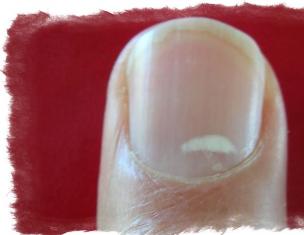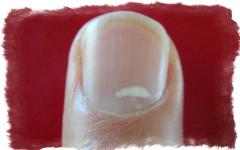Every spring, nettle shoots are among the first to appear. Nettle is the first gift of spring. Nettle tea will improve your health, restore strength, boost your immune system and awaken your body in the spring.
The ability of nettle to treat diseases has been known since ancient times. Nettle improves cardiac activity, relieves headaches, and stops any internal bleeding. The diuretic properties of nettle help cleanse the blood of toxins. It is believed that nettle can dissolve gallstones and kidney stones. Nettle completely cleanses the gastrointestinal system and activates the body's internal reserves. It is used as a general tonic, as well as for the treatment of hypertension, anemia, dermatitis...
How to find nettles
My first encounter with nettles was not very pleasant. While removing weeds along the fence, I smelled mint. I brought my palm with the leaves of a nearby plant to my face and instead of the pleasant minty aroma I felt a strong burning sensation. I had to dip my face in a trough of water.
Stinging nettle or common nettle is a perennial flowering plant. Nettle loves moist, fertile soil. Look for nettles in shaded, abandoned places, in forests, in thickets along rivers, as well as along the fences.
In spring, nettle shoots are several rows of leaves close to the ground. The plant grows quickly and can reach 2 meters in height over the summer. The plant dies in the fall, but reappears in the same place in the spring of the following year. You can harvest nettles in one place from year to year.
How to collect nettles
The sting of nettle is painful and can last for several hours. Therefore, wear gloves, a long-sleeved shirt and pants when picking nettles. Using garden shears, cut off the top four leaves of the nettle.

How to brew nettle tea
For 1 cup of nettle leaves, add 2 cups of water (preferably spring water). Heat without boiling. When the water is almost boiling, reduce the heat and simmer for a couple of minutes.

Tea is ready. Some people prefer to add a piece of sugar to their tea, but I think that nettle tea is incredibly tasty without any additives.

Boiled leaves can be eaten seasoned with butter or added to soup or stew. If you are going to eat the leaves, try a little first to make sure the nettles don't bite anymore.
Warning
To improve your health, 1-2 cups of nettle tea per day is enough. But those who are trying this product for the first time should start with small portions.
So, if you're looking to shake off the winter blues and awaken your body for spring, a restorative elixir lies in the nearest weed patch.
A plant such as nettle grows mainly in gardens, wasteland gardens, near ditches and even garbage dumps. Its flowering begins in May and ends in July. Today, 2 types of nettle are used in the medical industry:
- Berry;
- Meaty.
Nettle is indeed very beneficial for the human body. This plant contains a huge amount of various vitamins (including a lot of vitamin C), protein, all kinds of tannins and microelements necessary for humans such as phosphorus, magnesium, potassium and iron.
What are the benefits and harms of nettle?
Today, nettle tea, the benefits and harms of which have been proven in practice by many generations of people, is used very widely. This is explained by the fact that many diseases are effectively treated with this tea. Modern adherents of herbal medicine recommend it as an effective general tonic/vitamin remedy, and also has the ability to significantly improve metabolism and is characterized by a good diuretic effect. Nettle can increase the volume of milk in a nursing woman, normalize the menstrual cycle, help strengthen vascular walls and cleanse the blood.
In addition, it is prescribed for the treatment of various liver pathologies, diseases of the gastrointestinal tract and diseases of the respiratory system. Nettle tea is recommended for:
- gout;
- gallbladder diseases;
- liver diseases;
- rheumatism.
Of course, this plant, in addition to its beneficial properties, also has contraindications. Its active substances can thicken the blood. Accordingly, those people who suffer from problems with cerebral vessels, varicose veins, need to be treated with nettle extremely carefully. It is strictly forbidden to drink tea from this plant, for example, in case of kidney or heart failure.
It can also cause harm and is absolutely contraindicated for:
- bleeding resulting from polyps, cysts, tumors of the uterus and appendages;
- high blood clotting;
- This plant should be used with extreme caution for any kidney disease.
The most important thing: when taking nettle tea internally, be sure to avoid overdose. In addition, in extreme heat, i.e. then, when the body loses moisture as much as possible, this remedy should be abandoned.
PICTURE 3
How to prepare nettle tea
Home-brewed nettle tea can bring both benefits and harm. You need to prepare it correctly. Tea can be brewed from either fresh or dried nettle leaves. First you need to put them in a small saucepan, carefully pour in room water, cover with a lid and gradually bring to a boil over low heat. After the water boils, you should immediately turn off the heat, and then steep the tea for half an hour. You need to drink nettle tea decoction 3 times a day, approximately a quarter of an hour before meals.
Nowadays, nettle can be used in a wide variety of herbal preparations. You can purchase such tea mixtures at a pharmacy. Particularly tasty and healthy nettle tea is found in teas made from collections of this plant with rose hips. It is easy to prepare this tea at home. You need to take one handful of dried/fresh rosehip, two tablespoons of nettle leaves, pour it all with 2 liters of boiling water, and then leave it in a thermos for at least three hours.
Helpful information
It doesn’t hurt to know that today the decoction and the traditional tea familiar to most people are different. Firstly, the so-called tea in everyday life implies that this drink can be drunk without a clear system - at an approximate time/quantity. Because the concentration of the active substance in it is insignificant.
Most consumers believe that tea is when several nettle leaves are simply brewed in a cup in order to enjoy the natural taste and aroma. This drink does not have a noticeable therapeutic effect.
Nettle. Probably, few people have escaped these stinging leaves in their lives, which are also the most valuable part of the plant. It grows everywhere: in the forest, in the garden under the window, but mostly the prickly family lives in the tropics, where there are even some deadly species. But here we will discuss the “native” herb, or rather, not even the herb itself, but nettle tea. Our plant will not make you die in agony, but, on the contrary, will only bring health and longevity.
Nettle tea: benefits and harms of the drink
Stinging nettle is actually a very healthy plant, rich in vitamins, protein, trace elements and tannins.
Benefit
The large amount of vitamins in the herb makes nettle tea a strong antioxidant, a drink for youthful skin and a booster of the immune system.
Phosphorus, which is abundant in the decoction, is good for nerves, teeth, bones, and muscles. It also supports the functioning of the heart, kidneys and other organs and tissues. Plus is indispensable for normal mental activity.
And this can be said about each element, and there are many of them in the plant, and they all carry great benefits. No one will deny the important role of iron for the human body, as well as:
- calcium,
- magnesium,
- sodium,
- copper,
- zinc and other macro and micro substances contained in nettle.
- Many diseases are treated with tea from the plant. Moreover, nettle is recognized in official and folk medicine. The drink is used not only as a general strengthening vitamin, but also as a healing decoction to get rid of gastrointestinal diseases, liver pathologies, and respiratory diseases.
- Nettle tea helps women. When breastfeeding, it helps to increase the volume of milk in the breast; in case of irregular menstruation, it improves the cycle, stops heavy bleeding, and eases painful periods.
- The decoction improves metabolism and is a diuretic, which indicates its ability to help lose extra pounds.
- The drink is recommended to be taken for gout, because it restores, as already mentioned, metabolism. And this is important for such a disease, because disruption of this process leads to it. Nettle can also remove salts from joints, which are also the cause of kings' disease, as gout is also called.
- Since nettle tea, among other things, is a choleretic agent (by the way, nettle is part of allochol), it helps with diseases of the liver, bile ducts and gallbladder.
- Rheumatism can also be treated with nettle infusion; it is already clear that she knows how to take care of joints. True, usually for gout and rheumatism, the Spartan method is more often used - whipping nettles on sore spots, rather than drinking tea. They say it helps. But one does not interfere or harm the other here. It will only be doubly useful.
The healing properties of nettle and its decoction can be listed endlessly. But the drink also has contraindications.

Harm
Nettle tea. Its benefits and harms have been well studied. Of course, this is one of the priceless plants of our country. But still:
Also, you should not drink this tea constantly, especially in excessive quantities. In extreme heat in the summer, you should also avoid it.
To a greater extent, nettle tea has a beneficial effect on the human body. To support health, as a source of vitamins, such a drink, subject to restrictions, is what you need. But to treat diseases, you must first consult a doctor and not self-medicate.
Nettle has many beneficial properties for the human body. In the pharmaceutical industry it is used to prepare various drugs, medicinal tinctures, and herbal teas. Extracts from the herb are included in shampoos, creams and other cosmetics. Tea made from the leaves of the plant is used to treat many diseases, but the healing drink also has a number of contraindications.
- vitamins: A, E, K, B;
- trace elements: iron, copper, magnesium, phosphorus, barium, molybdenum, sulfur, manganese, potassium, chromium, aluminum, calcium;
- carotenoids;
- organic acids;
- glycosides;
- starch;
- flavonoids;
- phytoncides;
- histamine, choline;
- chlorophyll;
- tannins;
- proteins, carbohydrates.
- strengthening the immune system;
- acceleration of metabolic processes;
- strengthening vascular walls;
- normalization of blood pressure;
- reducing cholesterol and blood sugar levels;
- cleansing of toxins;
- stimulation of the gastrointestinal tract;
- increased appetite;
- improving vision;
- normalization of sleep;
- relieving nervous tension and stress;
- elimination of neurosis-like conditions;
- normalization of the genitourinary system.
- tuberculosis;
- anemia;
- haemorrhoids;
- nausea;
- heartburn;
- flatulence, diarrhea;
- urolithiasis disease;
- gastritis;
- allergy;
- arthritis, arthrosis;
- gout;
- rheumatism;
- migraine;
- neurodermatitis;
- pancreatitis;
- inflammation of the gallbladder.
Show all
Compound
The most beneficial parts of nettle are the leaves; they contain many components:
The leaves and stems of fresh nettle contain a large amount of water - about 80%. The plant is low in calories and contains virtually no fat. Dried leaves are used for brewing tea and preparing tinctures.
Medicinal properties
The plant is useful for both oral and external use. Drinking nettle tea helps:
Nettle tea also has other medicinal properties; it has a bactericidal, anti-inflammatory, and hemostatic effect. The use of the plant helps to block the appearance of new formations in cancerous tumors, so a tincture from it is indispensable for cancer. The medicinal herb is especially useful for the heart and blood vessels - when consumed, the heart muscle and vascular wall are strengthened, blood circulation is normalized.
Nettle can treat many diseases. So, the indications for the use of nettle tea are:
You can use nettle for medicinal purposes only after consulting a doctor, since uncontrolled use of the plant can be harmful to health.

For women
For women and girls, nettle is useful for heavy periods and pain in the uterine area. The plant allows you to reduce the amount of discharge, normalize the cycle, and also compensate for the loss of hemoglobin. During lactation, nettle tea helps replenish the lack of vitamins and other substances.
The drink is also indispensable during menopause; it helps reduce nervous excitability, normalize blood pressure and eliminate pain. The plant is also useful for weight loss - the substances in the perennial contribute to the rapid burning of calories. Nutritionists advise not only drinking nettle tea, but also preparing dishes from it - soups, salads, casseroles.
The benefits of the herb for the skin are invaluable - when drinking tea, acne, fine wrinkles and swelling disappear, the skin cleanses, and pigmentation decreases.

For men
For males, the perennial is an excellent natural sexual stimulant. Drinking nettle tea improves potency and increases libido. The plant helps to increase the number of sperm and improve reproductive function. Regular use of the drink helps men fight prostatitis.
During a hangover, nettle tea helps to quickly remove harmful substances from the blood and improves general condition. The herb has also been noted to eliminate nicotine addiction.
For children
Nettle is useful for children as a natural immunomodulator. Tea helps strengthen the immune system and reduce susceptibility to viral diseases. For colds, the healing drink helps eliminate cough and relieve inflammation in the upper and lower respiratory tract. Regular consumption helps to compensate for the lack of iron and other vitamins in the child’s body and prevent the development of anemia.
It is allowed to use nettle tea for children in the absence of an allergic reaction to the stinging plant. Otherwise, you can only harm the fragile body.
Contraindications
The harm to the plant is due to its “burning” effect. After contact with nettles, burns remain on the skin, which can be eliminated by taking an antihistamine and applying a compress of a solution of apple cider vinegar and water.
You probably know that if you touch nettles, you will feel a burning sensation? This is because its leaves and stems have fine hairs that release irritating chemicals when they come into contact with the skin. However, you should not avoid nettles because of this. You will be surprised, but a cup of nettle tea can instantly give you freshness and energy!
The plant is also known as Urtica dioica (nettle) in Latin and has a rich herbal heritage. It has been used as a diuretic since the Middle Ages in Europe and is an excellent tonic for women.
A cup of nettle tea contains vitamins A, B and K, riboflavin, niacin, folic acid, carbohydrates (71.33%), fats (2.36%) and proteins (25.8%). It is also rich in minerals such as calcium, iron, potassium, phosphorus, manganese, zinc, copper and magnesium.
Nettle is widely valued for its nutritional and healing properties, but let's find out what benefits nettle tea has.
1. Has a positive effect on digestion
2. Reduces blood cholesterol levels
Nettle contains beta-sitosterol, which helps reduce the body's absorption of cholesterol and thus promotes healthy heart and arteries.
3. Provides proper cellular structure
Nettle is rich in flavonoids such as quercetin, which have antioxidant properties. Nettle extract tea helps protect DNA and cell membranes from damage caused by free radicals.
4. Helps prevent bladder problems and kidney stones
Nettle leaf tea is a natural diuretic that helps maintain the flow of water through the kidneys and bladder, thereby inhibiting the process of crystallization (formation of kidney stones). According to the Journal of Herbal Pharmacotherapy, using nettle tea can help remove toxins from the urinary tract and also enhance the effects of medications used to treat urinary tract infections.
5. Acts as a natural pain reliever that relieves arthritis pain and muscle pain
Nettle has been used since time immemorial to treat arthritis. Research supports the conclusion that topical use of nettle leaf extract can help relieve joint pain. Additionally, drinking nettle leaf tea and extracts along with non-steroidal anti-inflammatory drugs (NSAIDs) can help people reduce their dosage of the latter.

6. Can cure eczema and other skin conditions
Nettle tea helps flush toxins from the body. This, in turn, keeps the skin clear and helps treat eczema.
7. Used as a natural allergy cure
Nettle tea both prevents and treats allergies associated with seasonal changes, such as itching, allergic rhinitis and sneezing. Nettle helps reduce the amount of histamine produced in the body in response to an allergen, which is why doctors prescribe freeze-dried nettle to prevent the development of hay fever.
8. Treatment of benign prostatic hyperplasia (BPH)
Stinging nettle is used to treat BPH in Europe, according to the University of Maryland Medical Center. Laboratory studies have shown that nettle may work like finasteride (a medicine used to treat prostate hyperplasia) in slowing the proliferation of prostate cells, although it does not reduce the size of the prostate. But scientists still need more research in this area to find out how nettle reduces BPH symptoms.
9. Good tonic for women
Nettle tea is rich in iron and helps fight anemia. Pregnant women are advised to drink nettle tea to prevent bleeding and keep the fetus strong. Nettle also functions as a herbal that stimulates milk production in nursing mothers. Young women can also drink nettle tea to help prevent the bloating and cramps that accompany the onset of their menstrual cycle. It also reduces fibroids, regulates the menstrual cycle and prevents menopausal symptoms in women by producing estrogen.

10. Helps Prevent Diabetes and Blood Pressure Problems
Drinking nettle tea helps lower blood sugar levels. Natural diuretic properties also help maintain blood pressure.
11. Effective oral hygiene product
Poor oral hygiene can have a very negative impact on your well-being. Gingivitis and plaque can lead to bad breath and mouth ulcers. Gingivitis can be prevented by using nettle extract tea with mouthwash.
12. Reduces internal bleeding
Nettle tea is known to reduce uterine, nose and intestinal bleeding. But please do not neglect to contact a medical specialist if you experience any unexplained bleeding! Nettle tea can also be used to treat minor bruises.
Preparation of nettles
If you have access to fresh plants, you can simply dry the nettle leaves in the sun to make tea. Or purchase ready-made raw materials at the pharmacy.

To make tea, you just need to brew one or two teaspoons of dried nettle leaves with one glass of boiling water and let it brew for 5-10 minutes. That's it, your healing drink is ready! For added benefits, you can add nettle root tincture. To improve the taste and aroma, add lemon and honey if desired.
You can also use ready-made nettle tea bags, which is very convenient when you are away from home.

Possible side effects
Like any other remedy, nettle tea can cause side effects. Therefore, pregnant women and nursing mothers should consult a doctor before trying nettle tea or adding it to their diet.
Finally
Considering the above benefits of nettle tea, we can say that it is a universal solution to almost all health problems! By making him a constant companion, you will ensure a healthy future for yourself!









